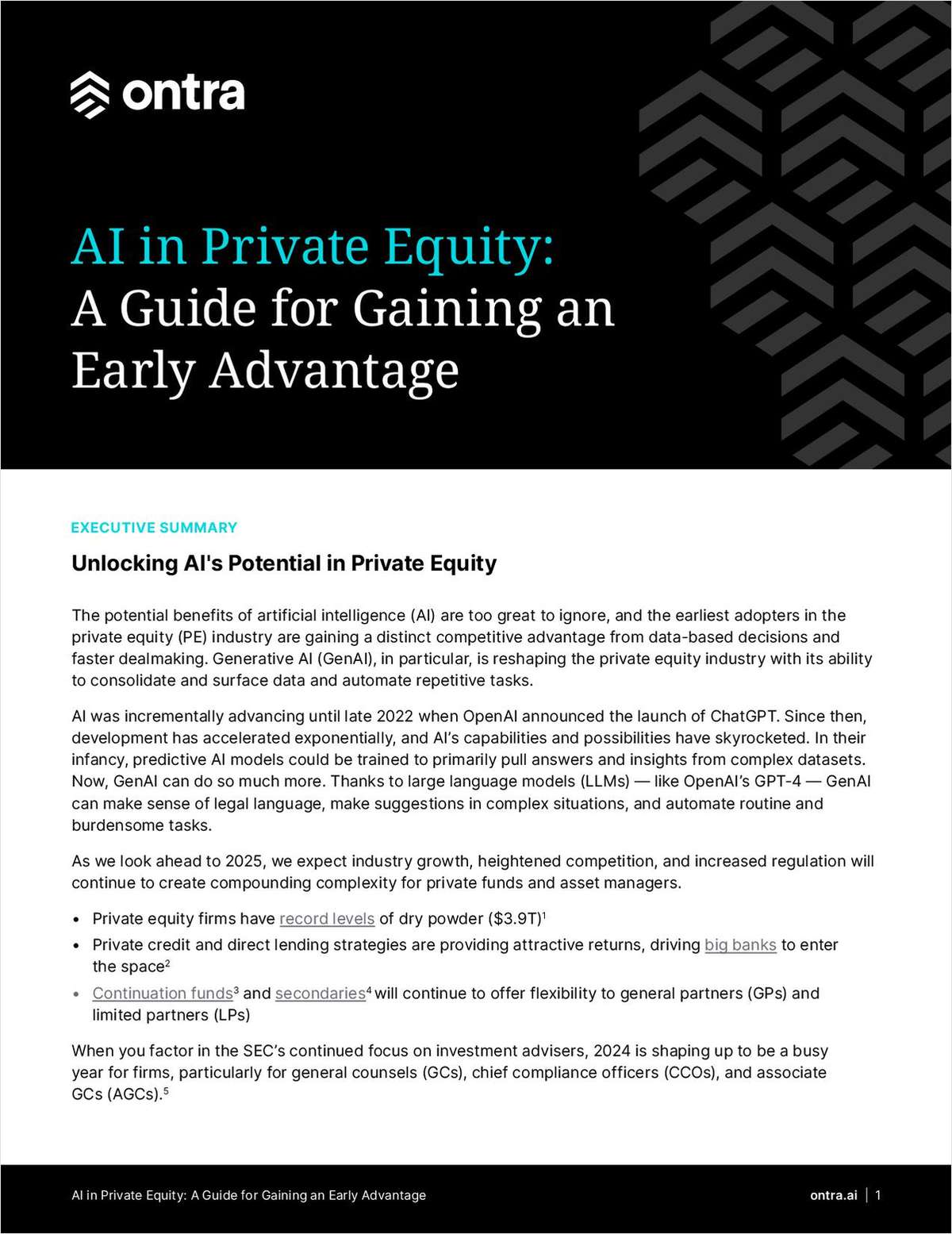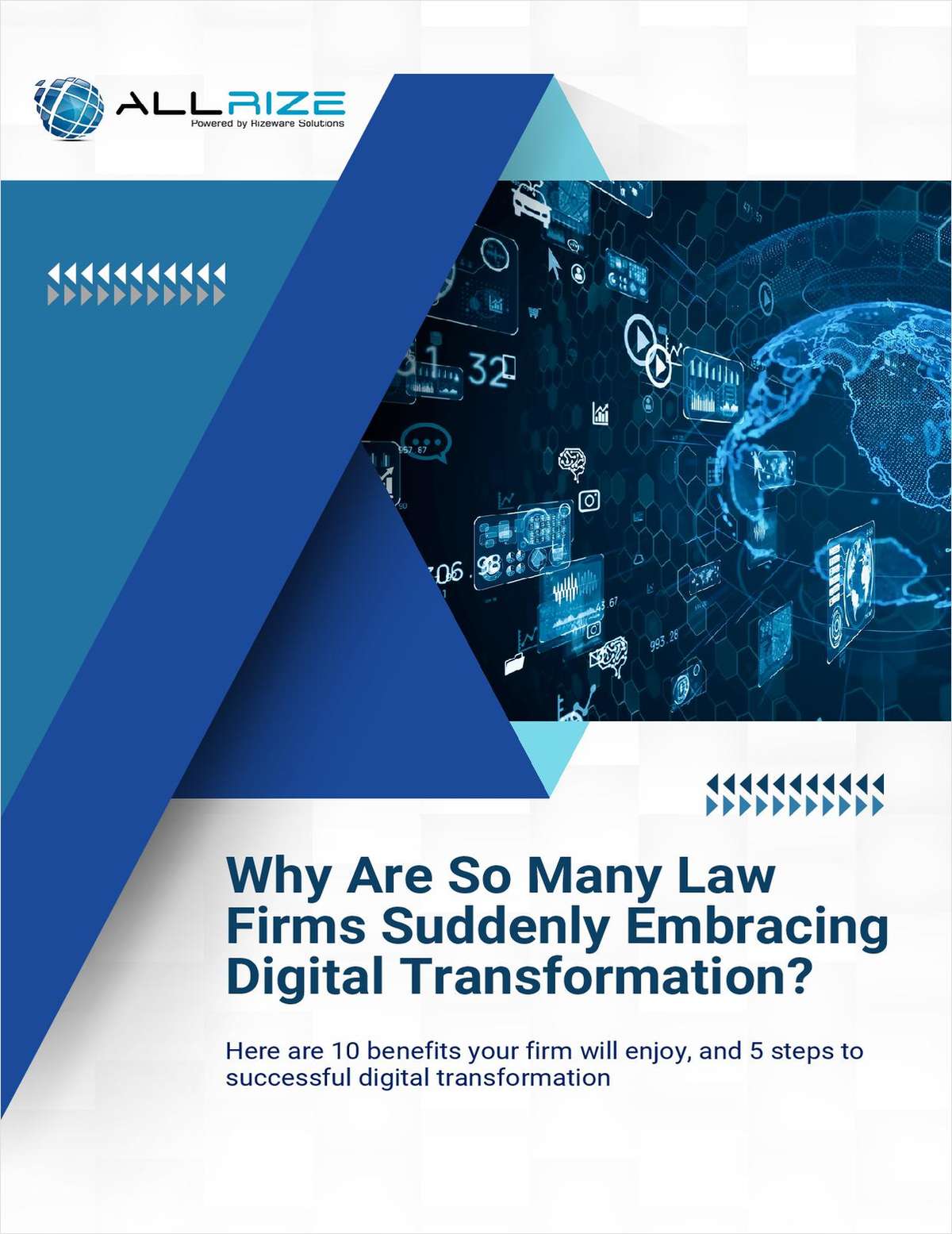American Apparel and After: A Q&A With Chelsea Grayson
When Chelsea Grayson first accepted the role of general counsel and chief administrative officer with troubled retailer American Apparel…
August 09, 2017 at 01:48 PM
6 minute read
The original version of this story was published on Law.com
When Chelsea Grayson first accepted the role of general counsel and chief administrative officer with troubled retailer American Apparel in late 2014, she couldn't have known that someday she would find herself preparing the company for a sale after its second bankruptcy and then taking the helm as chief executive officer.
Grayson's tenure as GC began after Dov Charney, the apparel company's founder and CEO, was ousted from the company over allegations of sexual misconduct. She led American Apparel through a turnaround after the retailer filed for Chapter 11 bankruptcy and resolved lawsuits with Charney. Grayson found herself as a candidate to step into the CEO role after his replacement, Paula Schneider, decided to leave the company. In an interview at the time, Schneider detailed how in her time with American Apparel she received death threats and needed a bodyguard to go to work.
Grayson didn't feel the same toxicity within the company and accepted the CEO role last September. But despite the new title, she didn't take off her lawyer hat that quickly, as she was immediately tasked with selling the company after a second bankruptcy.
Grayson stayed on until this April, seeing the company through its sale. In January, Canadian brand Gildan Activewear agreed to purchase the Los Angeles-based company's intellectual property and some manufacturing equipment for $88 million.
Grayson spoke to Corporate Counsel earlier this month about what it was like to see American Apparel through tough transitions and where she pictures herself next. The conversation has been edited for length and clarity.
Corporate Counsel: Was your jump from GC to CEO part of American Apparel's succession plan or was it something that just happened after Paula Schneider's abrupt departure?
Chelsea Grayson: It was a healthy, amicable, well-thought-out transition. The board had time to do a retained search. There was no scramble. It wasn't an internal crisis or anything like that. I can't talk about the other options the owners had, but I certainly was not a lock for the position.
CC: When you learned that American Apparel was being sold, were you concerned about job security or that the turnaround plan for the company wasn't successful?
CG: I was never concerned about that. Gildan cares very much about shepherding the brand to the next level. In a weird way, I see that as a continuation of a turnaround in some ways, which is why I feel so good about having done that deal. There's still going to be an American Apparel. There had been so much craziness at [American Apparel], maybe it just takes a lot to concern me.
CC: So you stayed on until April to help with the transition to Gildan. What have you been doing since then?
CG: I'm not ashamed to say I needed a break. In my life, since I started working at 15, I've never not worked. I've been doing speaking engagements—whether on substantive topics like corporate resiliency, ethics compliance programs or weathering an SEC investigation. I've also been doing some one-off consulting gigs.
CC: What type of consulting?
CG: It's actually sort of an interesting collection of gigs, some retailers for sure. In retail, whatever seasoned veterans know from their 30 years of industry experience is not particularly relevant right now. You absolutely have to be up to date on what's happening, particularly when it comes to the e-com space and what they're all trying to achieve with creating that true omnichannel customer experience.
Then I've been speaking with a couple of public companies and a private company about their ethics and codes of conduct and culture. That's what I did at American Apparel. They brought me in originally as general counsel to bring order to that chaos.
CC: How are you advising them in those instances?
CG: Just noticing you're in a culture crisis and cutting out the people that are causing it isn't enough. To rehab a company's culture or to avoid that company's crisis to begin with takes a lot—from a code perspective, from an implementation perspective.
You've got to put the right HR group together. A lot of what I'm doing is talking to boards about how they can implement tone from the top.
Is it better to hold on to the folks that are [in the company], but they're causing toxicity internally? Or is it better to excise those folks—and hope that your brand remains healthy—in favor of having a healthy culture? And when does your bad culture trickle to the outside when you eventually start turning off your customers, especially if it's a millennial customer? They don't want to be customers of a company if they don't think the mission is authentic. If they see that things are ugly inside, it's not authentic.
CC: Any companies you can name you've been speaking to?
CG: No. I'll leave it at that.
CC: For your next role, are you leaning more toward going back to legal or will you continue with the business side?
CG: I certainly would love to run another company. I got a real taste for it at American Apparel.
Some of the GC or CLO positions that have come down the pike are very plain vanilla, just not complicated enough or I don't think I'd get enough board exposure. I'm certainly considering GC and CLO positions where I feel like I would be fulfilled, where I think it would be an extremely interesting job and where it looks like they really need me in that position.
CC: Will you stay in retail or are you considering other industries?
CG: It's obviously an industry that's in peril, but I know a heck of a lot about retail at this point. Having seen mistakes, having seen successes, having been in the trenches seeing what moves the needle and what doesn't.
I'd love to go do that right now but I really am industry agnostic. Mostly what I like to do is go where I'm needed.
Contact Stephanie Forshee at [email protected].
This content has been archived. It is available through our partners, LexisNexis® and Bloomberg Law.
To view this content, please continue to their sites.
Not a Lexis Subscriber?
Subscribe Now
Not a Bloomberg Law Subscriber?
Subscribe Now
NOT FOR REPRINT
© 2024 ALM Global, LLC, All Rights Reserved. Request academic re-use from www.copyright.com. All other uses, submit a request to [email protected]. For more information visit Asset & Logo Licensing.
You Might Like
View All
Inside Track: Late-Career In-House Leaders Offer Words to Live by

In-House Leaders Trying to Contain Political Divisiveness Face Maze of Challenges
5 minute read
Meta Directors Accused of Deleting Emails Discussing Cambridge Analytica, FTC Settlement
3 minute read
FTC Bans Exec From Chevron Board—Exercising Authority It Doesn't Have, GOP Dissenters Say
5 minute readTrending Stories
Who Got The Work
Christopher J. DeGroff, Andrew L. Scroggins and Samantha L. Brooks from Seyfarth Shaw have stepped in to represent AG Equipment Company in a pending lawsuit over alleged employment discrimination under the ADA. The case was filed Aug. 30 in Oklahoma Northern District Court by the Equal Employment Opportunity Commission on behalf of five former employees who contend that they were wrongfully terminated after seeking accommodations from the defendant's COVID-19 vaccine mandate. The case, assigned to U.S. District Judge Sara E. Hill, is 4:24-cv-00403, Equal Employment Opportunity Commission v. AG Equipment Company.
Who Got The Work
Samantha J. Hughes of Dykema Gossett has entered an appearance for Home Depot in a pending slip-and-fall personal injury lawsuit. The suit was filed Aug. 30 in California Central District Court by Countrywide Trial Lawyers on behalf of Ernestina Rolon. The case, assigned to U.S Magistrate Judge Karen L. Stevenson, is 2:24-cv-07451, Ernestina Rolon v. The Home Depot, Inc. et al.
Who Got The Work
R. Evan Jarrold and Latiqua M. Liles of Constangy, Brooks, Smith & Prophete have entered appearances for Walmart in a pending lawsuit for alleged breaches of the Family and Medical Leave Act. The complaint was filed Aug. 30 in Missouri Eastern District Court by Roberts, Wooten & Zimmer on behalf of a former Walmart employee who contends that he was wrongfully terminated for taking medical leave after contracting COVID-19. The case, assigned to U.S. District Judge Matthew T. Schelp, is 4:24-cv-01196, Weber v. Walmart, Inc.
Who Got The Work
Nelson Mullins Riley & Scarborough partner Molly Jean Given has entered an appearance for CooperCompanies, a medical device maker comprised of CooperVision and CooperSurgical, in a pending product liability lawsuit. The case, filed Aug. 27 in California Northern District Court by Girard Sharp and Sauder Schelkopf LLC, is part of a wave of cases brought on behalf of plaintiffs whose embryos failed to develop during in-vitro fertilization due to alleged contamination of the defendant's embryo culture media lots. The case, assigned to U.S. District Judge Jon S. Tigar, is 4:24-cv-06047, I.I. et al v. CooperSurgical, Inc. et al.
Who Got The Work
Jacob Oslick of Seyfarth Shaw has entered an appearance for Prudential Insurance Co. of America in a pending ERISA lawsuit. The complaint, which pertains to short- and long-term disability benefits, was filed Aug. 29 in Pennsylvania Eastern District Court by the Cornerstone Law Firm on behalf of Catherine Alunni. The case, assigned to U.S. District Judge John M. Gallagher, is 5:24-cv-04547, Alunni v. The Prudential Insurance Company Of America.
Featured Firms
Law Offices of Gary Martin Hays & Associates, P.C.
(470) 294-1674
Law Offices of Mark E. Salomone
(857) 444-6468
Smith & Hassler
(713) 739-1250








